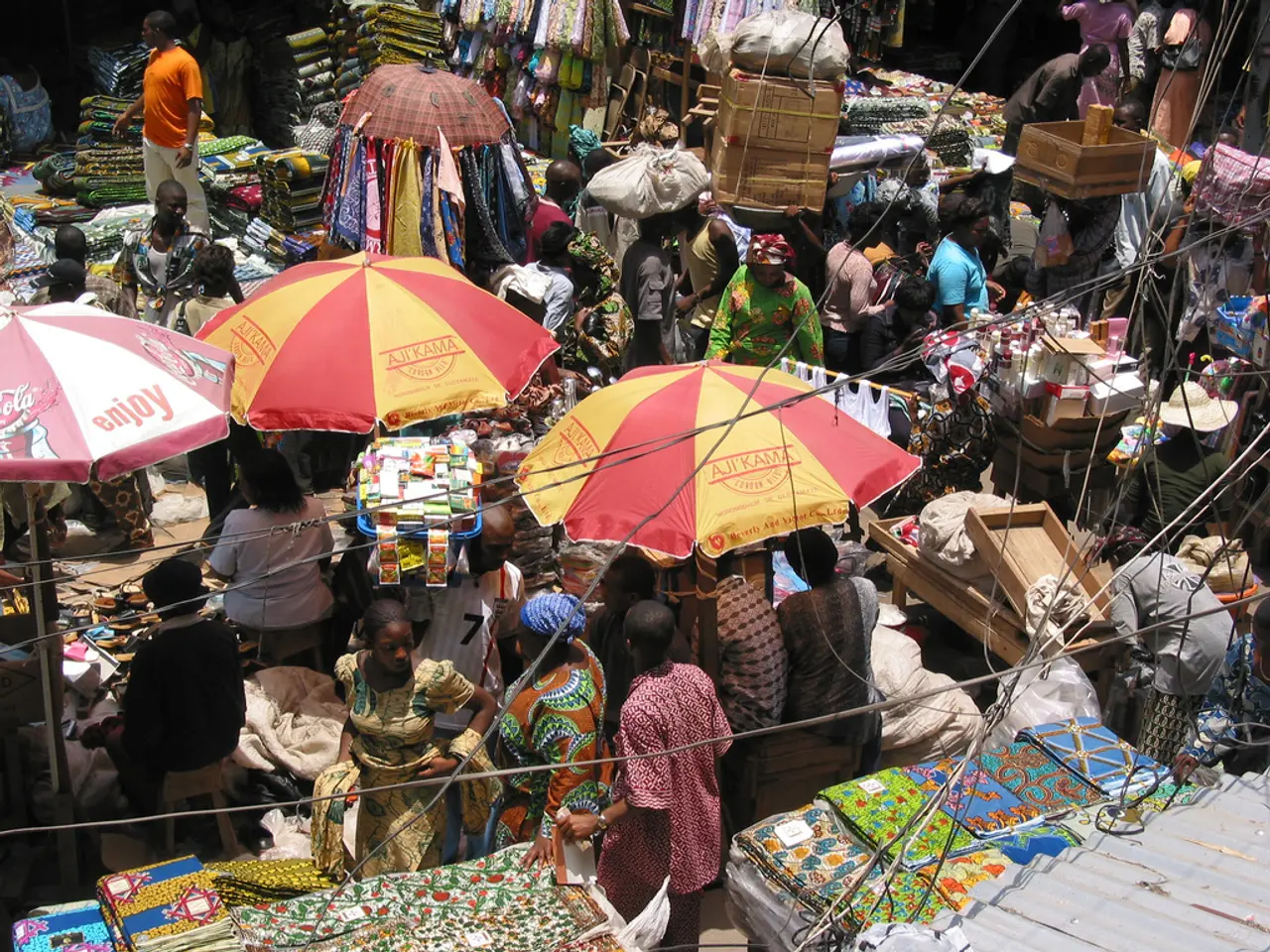Market turbulence as consumer trust wanes amidst counterfeit issue escalation
In Vietnam, a notable decline in consumer confidence has been observed, attributed to the government's crackdown on counterfeit goods and low-quality food products, as well as the volatile global trade environment. This decline has led to shifts in shopping habits, with consumers becoming more cautious and favouring verified and trusted sources.
The recent scandals involving fake medicines, dietary supplements, and luxury counterfeit goods have made consumers wary, especially of online purchases and informal markets. Residents in Ho Chi Minh City, for instance, have reported avoiding online shopping and preferring trusted stores, seeking products with verifiable traceability features like QR codes.
Large-scale raids and shutdowns, such as the closure of Saigon Square, a notorious hotspot for counterfeit luxury goods, have removed many vendors selling fake products, reducing consumer access to cheap counterfeit items but also disrupting familiar shopping venues.
In response to these issues, Vietnam is rolling out a digital traceability platform linking customs, tax, e-commerce, and market surveillance to authenticate products and combat counterfeits. This system aims to enhance supply chain transparency and restore consumer trust by allowing buyers to verify product histories via scanned digital IDs.
Authorities have also intensified regulatory scrutiny and corruption investigations, prosecuting officials and businesses involved in fraud and false certification of food and health products. This commitment to protect consumer health and improve market integrity is aimed at safeguarding consumers.
The crackdown and the subsequent reform measures have contributed to heightened consumer awareness and demand for product authenticity, encouraging more deliberate and informed shopping behavior. However, this temporary reduction in consumer confidence in markets plagued by widespread counterfeit problems is expected to gradually rebuild as new systems fully deploy in 2026.
According to a report by Kantar Worldpanel Vietnam, the value-consciousness in Vietnam is redefining, moving beyond just price to include quality, safety, and brand reliability. This shift suggests that consumers are willing to pay more for products they trust, signaling a positive outlook for brands that prioritize authenticity and transparency.
Despite the challenges, the fast-moving consumer goods market in Vietnam remains resilient, offering hope for investors to expand their portfolios. For instance, the Masan Group Corporation achieved over 50% of its full-year profit target, as per their unaudited management accounts for the second quarter and first half of 2025.
In conclusion, the government's crackdown on counterfeit goods and low-quality food products is reshaping shopping habits in Vietnam, pushing consumers towards more intentional spending and a greater focus on essential goods. While the road to restoring consumer confidence may be long, the commitment to transparency and market integrity offers a promising path forward.
- Consumers in Vietnam are becoming more cautious in their business decisions, shifting towards verified and trusted sources due to the rise in counterfeit goods and low-quality food products.
- The fast-moving consumer goods market in Vietnam, while facing challenges, remains resilient, indicating a positive outlook for businesses that prioritize authenticity, transparency, and quality.




